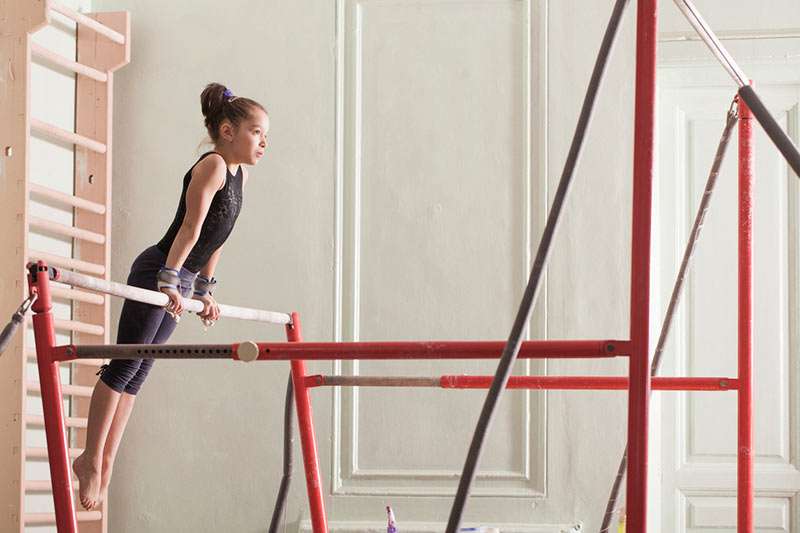Is Gymnastics Right for Your Child?

In this article, you will find:
Introduction
Is Gymnastics Right for Your Child?
Gymnastics has long been considered a sport of immense skill and dedication. However, those admirable qualities often come under scrutiny from critics who think the sport causes physical delays in young athletes and might, in the long run, do more harm than good to a child's well-being. Is the sport of gymnastics right for your child, or does it pose a threat to her physical development and health?
Gymnastics: Pros and Cons
Children are competing and training at earlier ages, many as young as six or seven years old. According to the U.S. National Library of Medicine, about 600,000 kids participate in school-sponsored or club-level gymnastics in the U.S. Participating in an organized sport such as gymnastics offers kids important benefits. Regular physical activity can help children avoid the risk of developing serious health problems such as diabetes, heart disease, and obesity. Organized activities and sports also provide opportunities for children to learn team skills and find out how to work with others.
However, some risks come with participating in gymnastics. According to the April 2008 issue of Pediatrics, more than 26,000 U.S. children, or about one in five participants, go to the emergency room for gymnastic-related injuries every year. The sport has one of the highest injury rates of all girls' sports, including soccer, basketball, and cheerleading.
Physical risks aren't the only concern for young athletes. Placing expectations on children to develop advanced motor skills before they are developmentally ready could also have emotional effects. According to the American Academy of Pediatrics, a child may experience feelings of failure and frustration when the demands of the sport exceed her cognitive and physical development. She may not understand what is being taught, even if a coach is available to teach the rules and skills.
For some, high-level sports become a way of life, and a normal childhood is no longer possible. According to Pediatrics, when children participate in a high-level sport, there is usually a shift from child-oriented goals to adult-oriented goals. Although few young gymnasts reach this level, many attempt to achieve it through rigorous training and a demanding lifestyle. The International Gymnastics Federation has found that the majority of these athletes are pushed to perform at a high level by their coaches, and sometimes even by their parents. These parents and coaches often lack the knowledge and environment to support this level of training, leading to unhealthy habits.